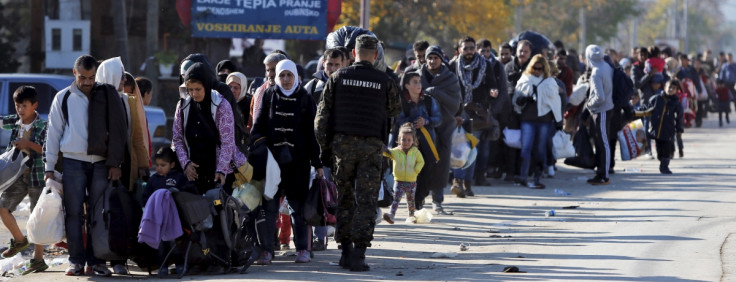EU migration crisis: Donald Tusk to convene another emergency meeting next week in Malta

European Council President Donald Tusk is convening another emergency European Union summit on migration next week in Malta to discuss the worsening migration crisis in the bloc. The move is also a bid by Tusk to prevent some member states to re-establish borders within the Schengen zone as the flow of migrants continue at an unprecedented pace.
This will be the sixth gathering of EU leaders on migration since April. The meeting will be held on 12 November, immediately after an already scheduled Summit of European and African leaders in Valleta.
Prior to the emergency meeting, Tusk has activated the EU's Integrated Political Crisis Response arrangements and is convening an extraordinary Justice and Home Affairs Council on 9 November. The meeting is aimed at "informing our discussions in Vallenta," given the speed at which events are developing.
In a letter dated 3 November, Tusk said: "Some EU states have been introducing different measures at internal Schengen borders. As I have warned before, the only way not to dismantle Schengen is to ensure proper management of EU external borders.
"We must do all we can to keep Schengen intact and so any initiative that may lead to the re-establishment of borders within Schengen should be withheld. If we are to avoid the worst, we must speed up our actions."
The meeting will primarily assess the progress made in the implementation of the measures agreed by the member states so far. This includes:
- stepping up cooperation with non-member states including Turkey to help curtail the migrant flows;
- implement the decisions taken on relocation of migrants;
- set up hotspots in Greece and Italy as well as reinforce reception capacities and provide FRONTEX and EASO with the required additional expense; and
discuss how to effectively reinforce the control of our external borders.
According to Politico, progress on issues already decided by member states in the previous meeting have been slow. As of Tuesday (3 November) only 86 refugees out of the agreed total of 39,600 have been relocated from Italy and none of the 66,400 refugees in Greece have been relocated.
The first relocation from Greece is expected to take place on Wednesday (4 November) and it will involve about 30 refugees from Syria and Iraq, an EU official noted.
© Copyright IBTimes 2025. All rights reserved.






















